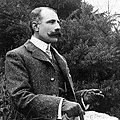Portal:England
The England portal

| |
England is a country that is part of the United Kingdom. It is located on the island of Great Britain, of which it covers about 62%, and more than 100 smaller adjacent islands. It shares a land border with Scotland to the north and another land border with Wales to the west, and is otherwise surrounded by the North Sea to the east, the English Channel to the south, the Celtic Sea to the south-west, and the Irish Sea to the west. Continental Europe lies to the south-east, and Ireland to the west. At the 2021 census, the population was 56,490,048. London is both the largest city and the capital.
The area now called England was first inhabited by modern humans during the Upper Paleolithic. It takes its name from the Angles, a Germanic tribe who settled during the 5th and 6th centuries. England became a unified state in the 10th century and has had extensive cultural and legal impact on the wider world since the Age of Discovery, which began during the 15th century. The Kingdom of England, which included Wales after 1535, ceased to be a separate sovereign state on 1 May 1707, when the Acts of Union brought into effect a political union with the Kingdom of Scotland that created the Kingdom of Great Britain.
England is the origin of the English language, the English legal system (which served as the basis for the common law systems of many other countries), association football, and the Anglican branch of Christianity; its parliamentary system of government has been widely adopted by other nations. The Industrial Revolution began in 18th-century England, transforming its society into the world's first industrialised nation. England is home to the two oldest universities in the English-speaking world: the University of Oxford, founded in 1096, and the University of Cambridge, founded in 1209. Both universities are ranked amongst the most prestigious in the world.
England's terrain chiefly consists of low hills and plains, especially in the centre and south. Upland and mountainous terrain is mostly found in the north and west, including Dartmoor, the Lake District, the Pennines, and the Shropshire Hills. The London metropolitan area has a population of 14.2 million as of 2021, representing the United Kingdom's largest metropolitan area. England's population of 56.3 million comprises 84% of the population of the United Kingdom, largely concentrated around London, the South East, and conurbations in the Midlands, the North West, the North East, and Yorkshire, which each developed as major industrial regions during the 19th century. (Full article...)
William Wilberforce (24 August 1759 – 29 July 1833) was a British politician, philanthropist, and a leader of the movement to abolish the Atlantic slave trade. A native of Kingston upon Hull, Yorkshire, he began his political career in 1780, and became an independent Member of Parliament (MP) for Yorkshire (1784–1812). In 1785, he underwent a conversion experience and became an Evangelical Anglican, which resulted in major changes to his lifestyle and a lifelong concern for reform.
In 1787, Wilberforce came into contact with Thomas Clarkson and a group of activists against the transatlantic slave trade, including Granville Sharp, Hannah More and Charles Middleton. They persuaded Wilberforce to take on the cause of abolition, and he became a leading English abolitionist. He headed the parliamentary campaign against the British slave trade for 20 years until the passage of the Slave Trade Act 1807. (Full article...)
Selected article -
William Gilbert Grace MRCS LRCP (18 July 1848 – 23 October 1915) was an English cricketer who is widely considered one of the sport's all-time greatest players. Always known by his initials as "WG", his first-class career spanned a record-equalling 44 seasons from 1865 to 1908. Test cricket originated during his career, and he represented England in 22 matches from 1880 to 1899. In domestic cricket, he was mostly associated with Gloucestershire, the Gentlemen, Marylebone Cricket Club (MCC), and the United South of England Eleven (USEE).
Right-handed as both batsman and bowler, Grace was an outstanding all-rounder who excelled at all the essential skills of batting, bowling, and fielding, though it is for his batting that he is most renowned, as he is held to have invented modern batsmanship. He dominated the sport during his career, and his technical innovations and enormous influence have left a lasting legacy. Usually opening the innings, he was particularly admired for his mastery of all strokes, and his level of expertise was said by contemporary reviewers to be unique. He generally captained the teams he played for at all levels because of his skill and tactical acumen. Grace nominally held amateur status as a player, but he was said to have made more money from his cricketing activities than any contemporary professional. He was an extremely competitive player and, though he was one of the most famous men in England, he was also one of the most controversial on account of his gamesmanship and moneymaking. (Full article...)
General images
Canterbury (/ˈkæntərb(ə)ri/ ⓘ, /-bɛri/) is a city and UNESCO World Heritage Site, in the county of Kent, England; it was a county borough until 1974. It lies on the River Stour. The city has a mild oceanic climate.
Canterbury is a popular tourist destination, with the city's economy heavily reliant upon tourism, alongside higher education and retail. As of 2011, the city's population was over 55,000, including a substantial number of students and one of the highest student-to-permanent-resident ratios in Britain. (Full article...)
Did you know?

- ...that the Rev. Arthur Wagner, the first curate of the Church of St. Paul, Brighton, England, commissioned stained glass windows of his mother, father and aunt for the church?
- ...that Scots' Dike was constructed by the English and the Scots in 1552 to mark the division of the Debatable Lands and thereby settle the exact boundary between the kingdoms of Scotland and England?
- ...that the famed message "England expects that every man will do his duty" is misquoted on Nelson's Column in London?
In the news

- 20 June 2025 –
- The United Kingdom parliament votes to approve a bill allowing terminally ill adults to voluntarily end their lives, moving towards legalizing assisted suicide in England and Wales. (DW) (BBC News)
- 10 June 2025 – Fossil fuel phase-out
- The British government announces it will invest £14.2 billion (US$19 billion) to construct the new Sizewell C nuclear power station in Suffolk, England, to reduce the country's reliance on fossil fuels. (AP) (Reuters)
- 26 May 2025 – 2025 Liverpool parade incident
- A vehicle ploughs into crowds of Liverpool F.C. fans celebrating their Premier League title win in the city centre of Liverpool, England. 109 people are injured, and a suspect is detained by Merseyside Police. (BBC News)
Selected featured content
Categories
Selected quotes
| “ | An Englishman, even if he is alone, forms an orderly queue of one. | ” |
Related WikiProjects
England • Bedfordshire • Brighton • Cheshire • Cornwall • Derbyshire • Dorset • Greater Manchester • Hampshire • Lincolnshire • London • Merseyside • Northamptonshire • North East England • Sheffield • Surrey. Warwickshire • West Midlands • Worcestershire • Yorkshire
Topics
Things you can do

- Please visit the English Wikipedians' notice board and help to write new England-related articles, and expand and improve existing ones.
- Visit Wikipedia:WikiProject England/Assessment, and help out by assessing unrated English articles.
- Add the Project Banner to English articles around Wikipedia.
- Check for announcements and open tasks for ways to improve English related articles.
- Help nominate and select new content for the England portal.
- Requested articles: Charterhouse Lane • Renewable energy in England • Ealing Village
- Expand: Dorothy Boyd • David Troughton
Related Portals
 |
 |
 |
 |
 |
 |
 |
 |
| East Midlands | London | North East | North West | South East | South West | West Midlands | Yorkshire and the Humber |

|

|

|

|

|
| Ireland | Northern Ireland | Scotland | United Kingdom | Wales |
Associated Wikimedia
The following Wikimedia Foundation sister projects provide more on this subject:
-
Commons
Free media repository -
Wikibooks
Free textbooks and manuals -
Wikidata
Free knowledge base -
Wikinews
Free-content news -
Wikiquote
Collection of quotations -
Wikisource
Free-content library -
Wikiversity
Free learning tools -
Wikivoyage
Free travel guide -
Wiktionary
Dictionary and thesaurus



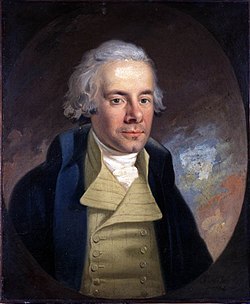


































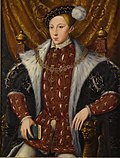


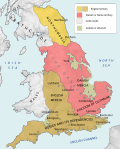









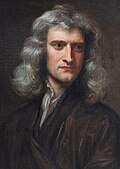











![Image 61The Staffordshire Hoard is the largest hoard of Anglo-Saxon gold and silver metalwork yet found[update]. It consists of almost 4,600 items and metal fragments. (from Culture of England)](http://upload.wikimedia.org/wikipedia/commons/thumb/6/60/Staffordshire_hoard_annotated.jpg/120px-Staffordshire_hoard_annotated.jpg)




